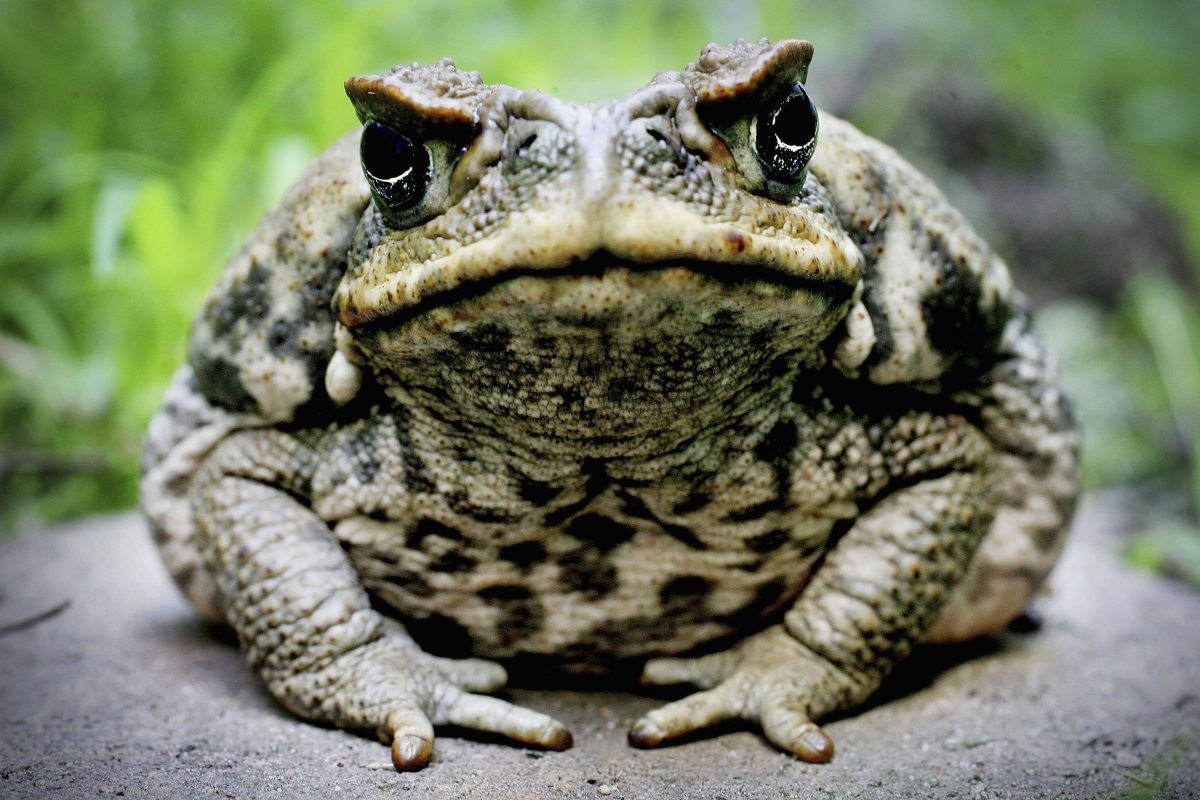Evolution is typically a slow process—but one toad species may have inadvertently figured out a way to speed it up: by eating their young.
Cane toads are native to Central America, but they were introduced to countries around the world in a failed effort to provide pest management on farms. The venomous species thrived in these new places—and in Australia, especially—and are now considered one of the globe's most invasive species.
In Australia, the toads have no natural predators and will eat practically anything, including birds and small mammals—a combination of factors that has led to a rapid population boom, resulting in millions of cane toads across the region.

Because cane toads in Australia do not have any predators, the species' only threat lies in each other. If the population gets too big, cane toads will be forced to compete for increasingly scarce resources.
As a result, they began to eat their own hatchlings to keep their population numbers in check. This sort of cannibalistic behavior has been observed in the species' native populations, reported Smithsonian Magazine, but it is far more common in Australia, where the lack of predators makes overpopulation their primary concern.
However, a new study published in Proceedings of the National Academy of Sciences of the United States of America (PNAS) now suggests that young toad hatchlings are adjusting rapidly in an effort to avoid the cannibalistic behavior of their elders.
Within Australian cane toad populations, tadpoles will devour the hatchlings laid in ponds by female toads. "When these eggs first hatch, the young can't swim or eat yet, so they can pretty much only lie there on the bottom of the pond until they develop into tadpoles," explained the study's lead researcher, Jayna DeVore, to Live Science.
She further explained her work in an email to Newsweek: "By collecting toads from across Australia and their native range in French Guiana, breeding them in the lab, and comparing the [behaviors] of their offspring, we found that cane toad tadpoles from invasive Australian populations are highly cannibalistic, whereas those from the native range are not."
"Australian tadpoles can actually smell when cane toad eggs are hatching nearby and will swim over specifically to cannibalize them," she added.
However, the "highly targeted" and "extreme" cannibalistic behavior can only take place during a brief period—merely a few days—before hatchlings have matured into tadpoles. "Once the hatchlings develop into tadpoles, they are too large and mobile for other tadpoles to eat them, so the cannibals have to work quickly if they want to consume them all," added DeVore to Live Science.
As a result, cane toad hatchlings have started to develop at a faster rate than seen in their native populations, effectively minimizing the window where they may be eaten by tadpoles. Explained DeVore to Live Science: "If cannibals are looking for you, the less time you can spend as an egg or hatchling, the better."
Developing faster may save hatchlings from an unfortunate, cannibalistic fate, but the accelerated maturation rate has its downfalls. Those that spent less time as hatchlings are less successful once they reach the tadpole stage.
"Cannibalism is an interesting process because it can simultaneously have positive and negative effects on the same species," explained DeVore to Newsweek. "Whereas the cannibals benefit from eating their competitors, the victims of cannibalism clearly do not. So in the end it creates a bit of an 'evolutionary arms race'—the cannibalistic tadpoles are getting better at cannibalizing and, in response, the hatchlings are getting better at defending themselves."
While further research is still necessary, there is hope that the toads' cannibalistic behavior could actually help regulate the size of their invasive population. "This would be great news, because the toads are quite poisonous, so there are few Australian predators or parasites capable of controlling their abundances," said DeVore.
Uncommon Knowledge
Newsweek is committed to challenging conventional wisdom and finding connections in the search for common ground.
Newsweek is committed to challenging conventional wisdom and finding connections in the search for common ground.
About the writer
To read how Newsweek uses AI as a newsroom tool, Click here.






